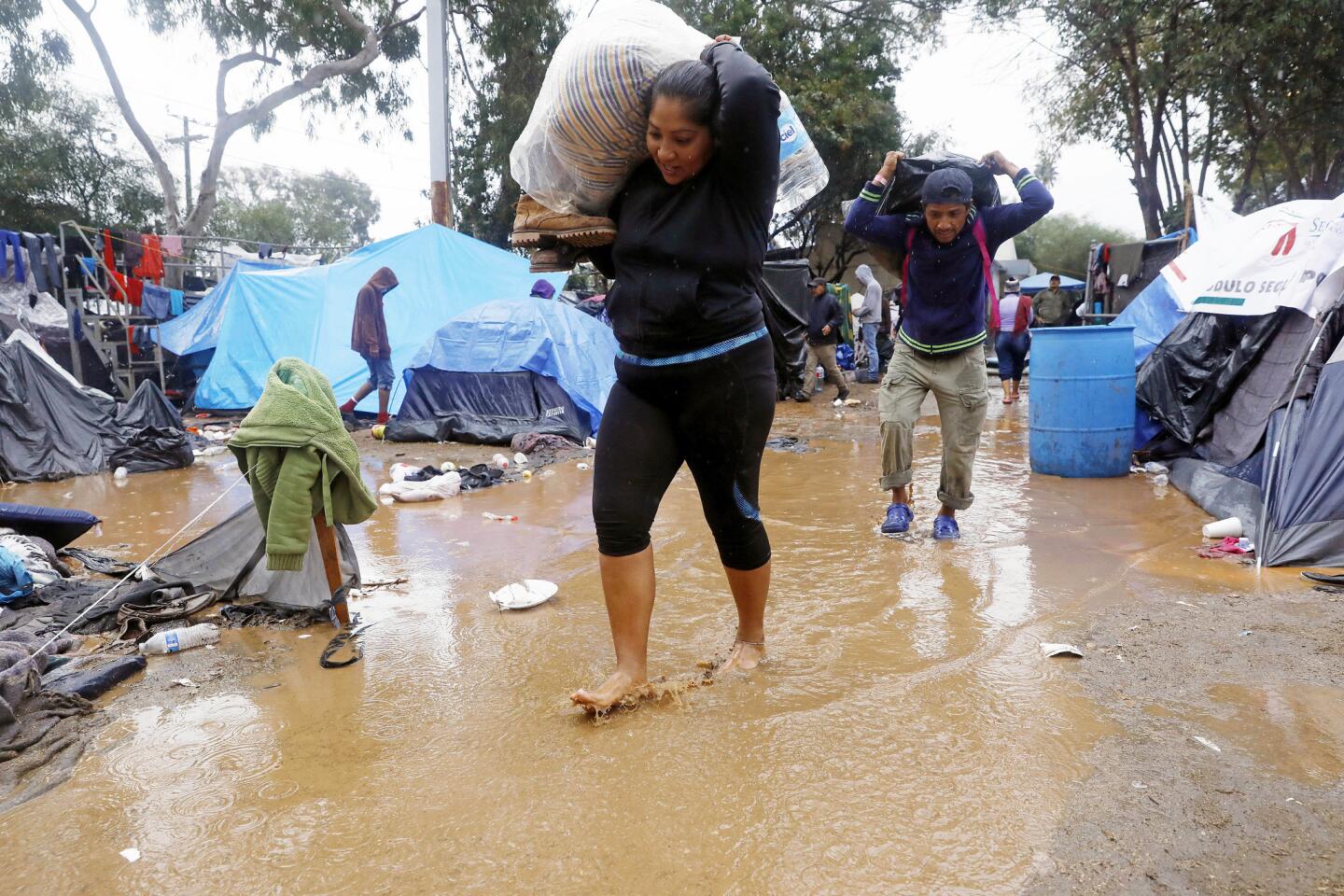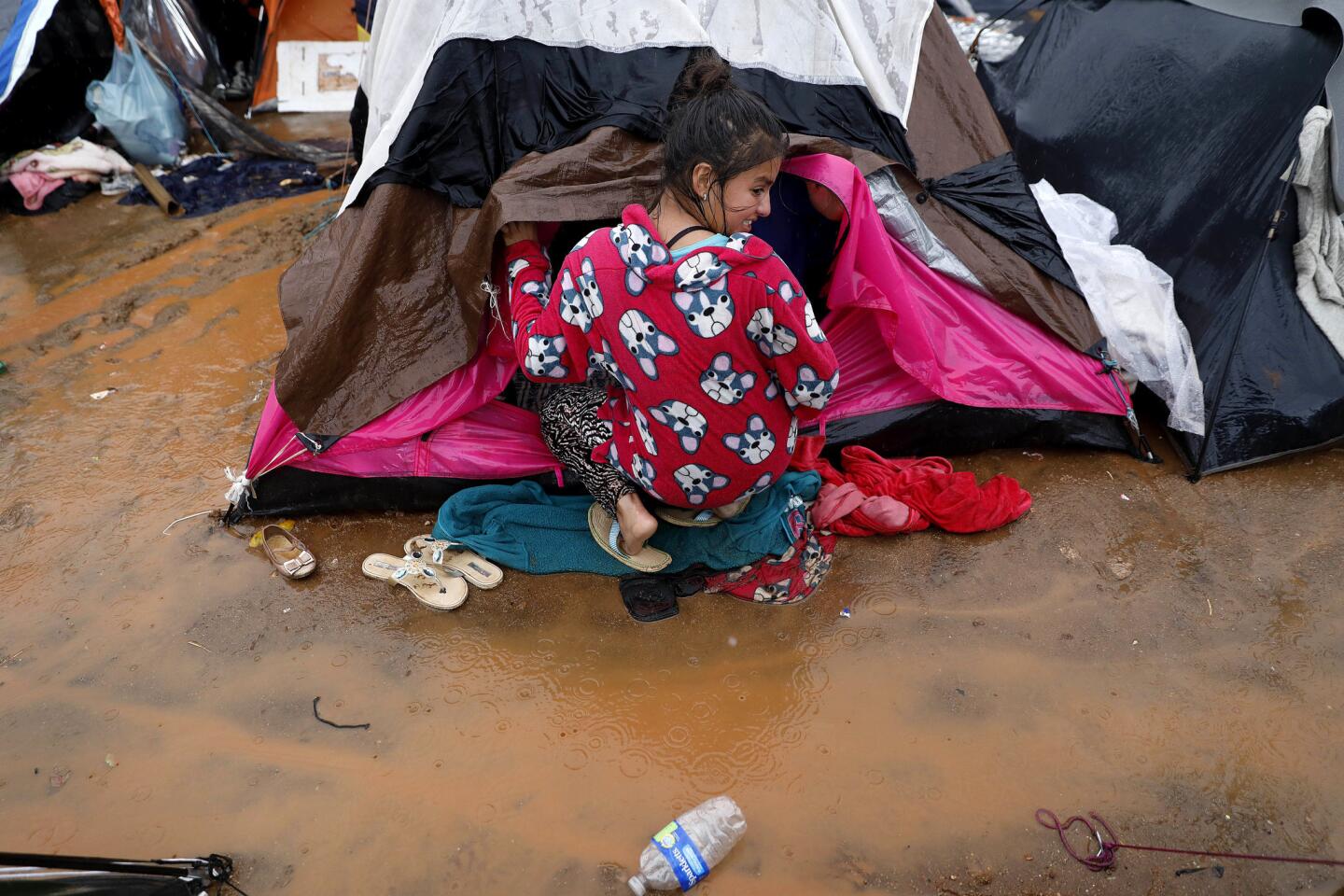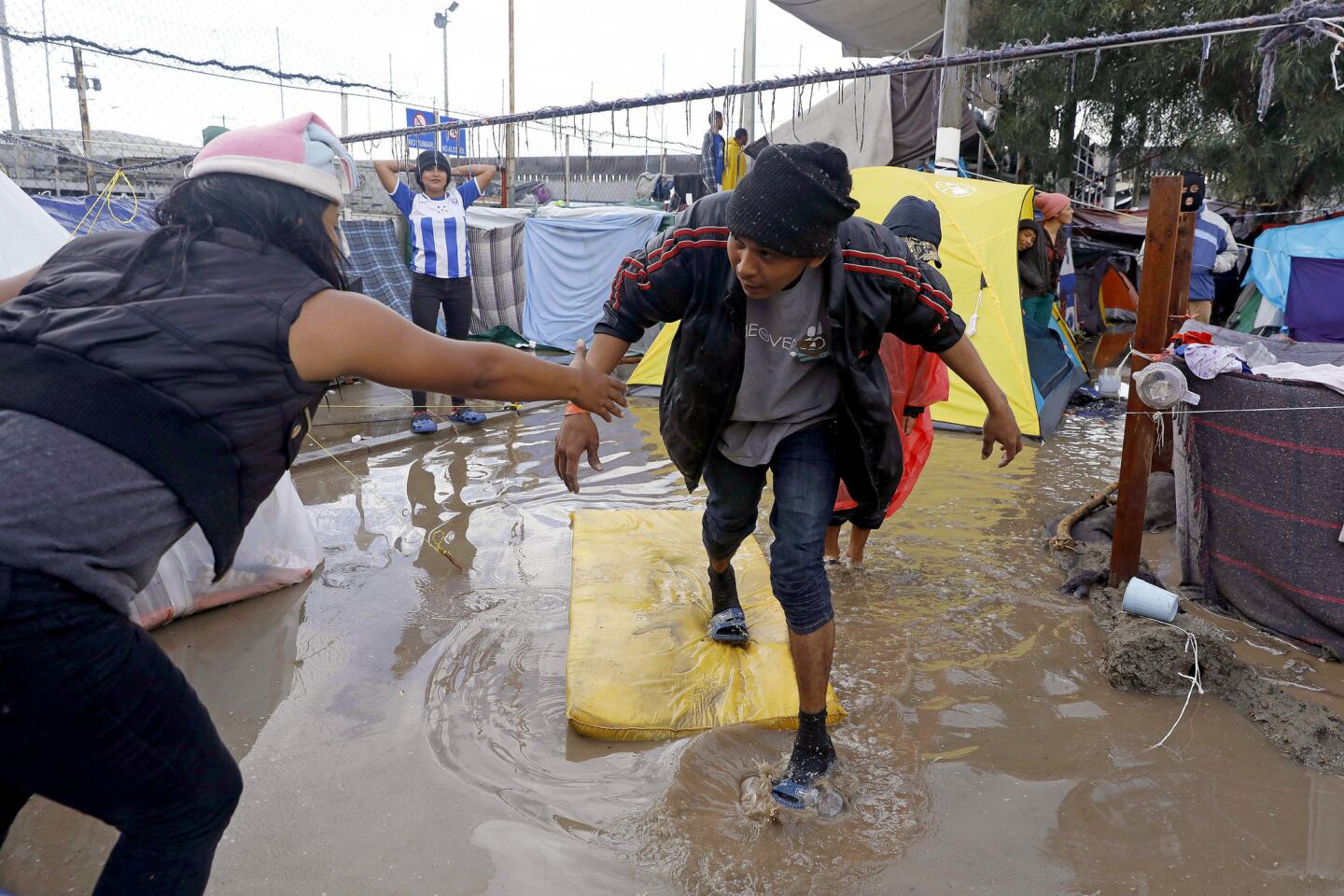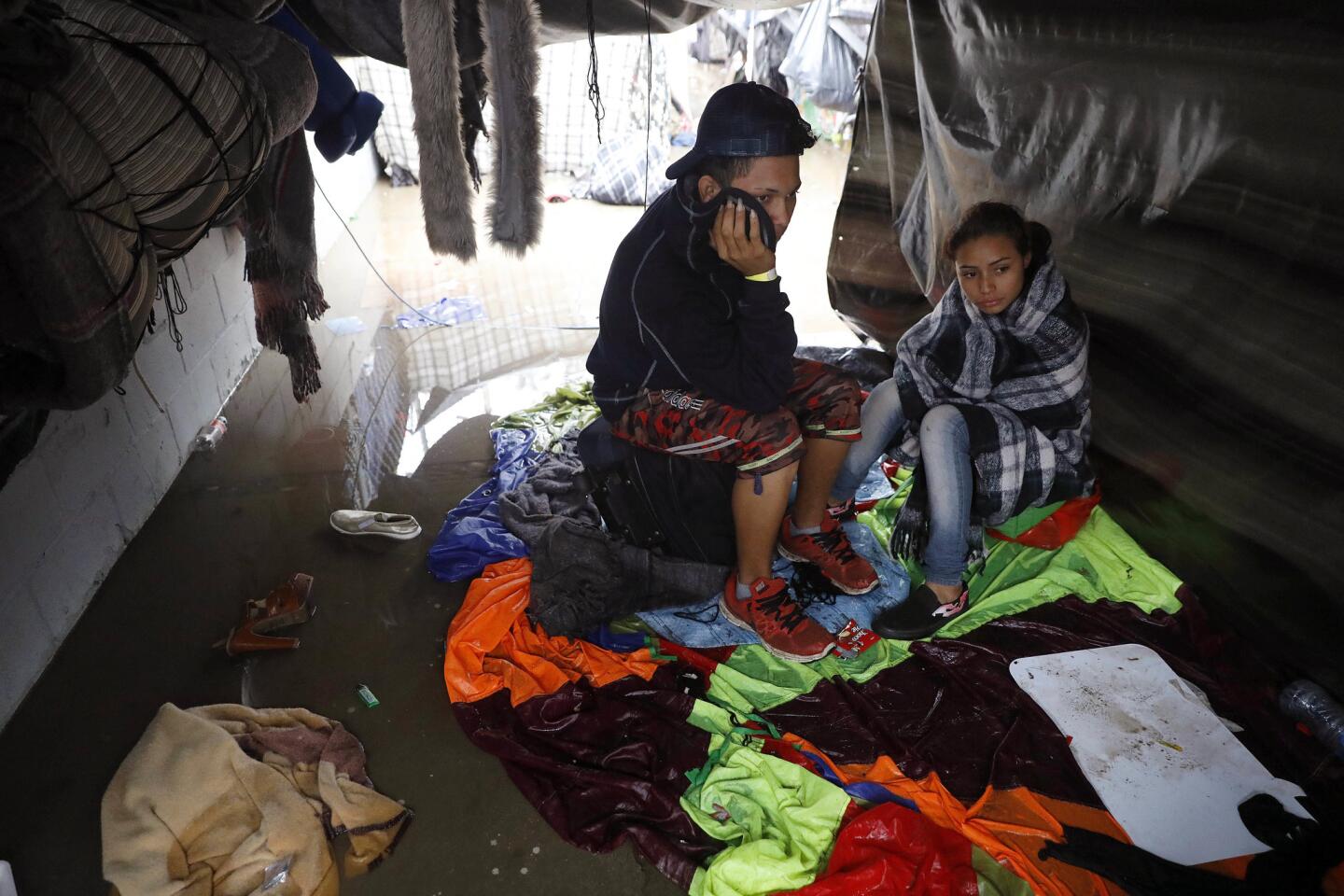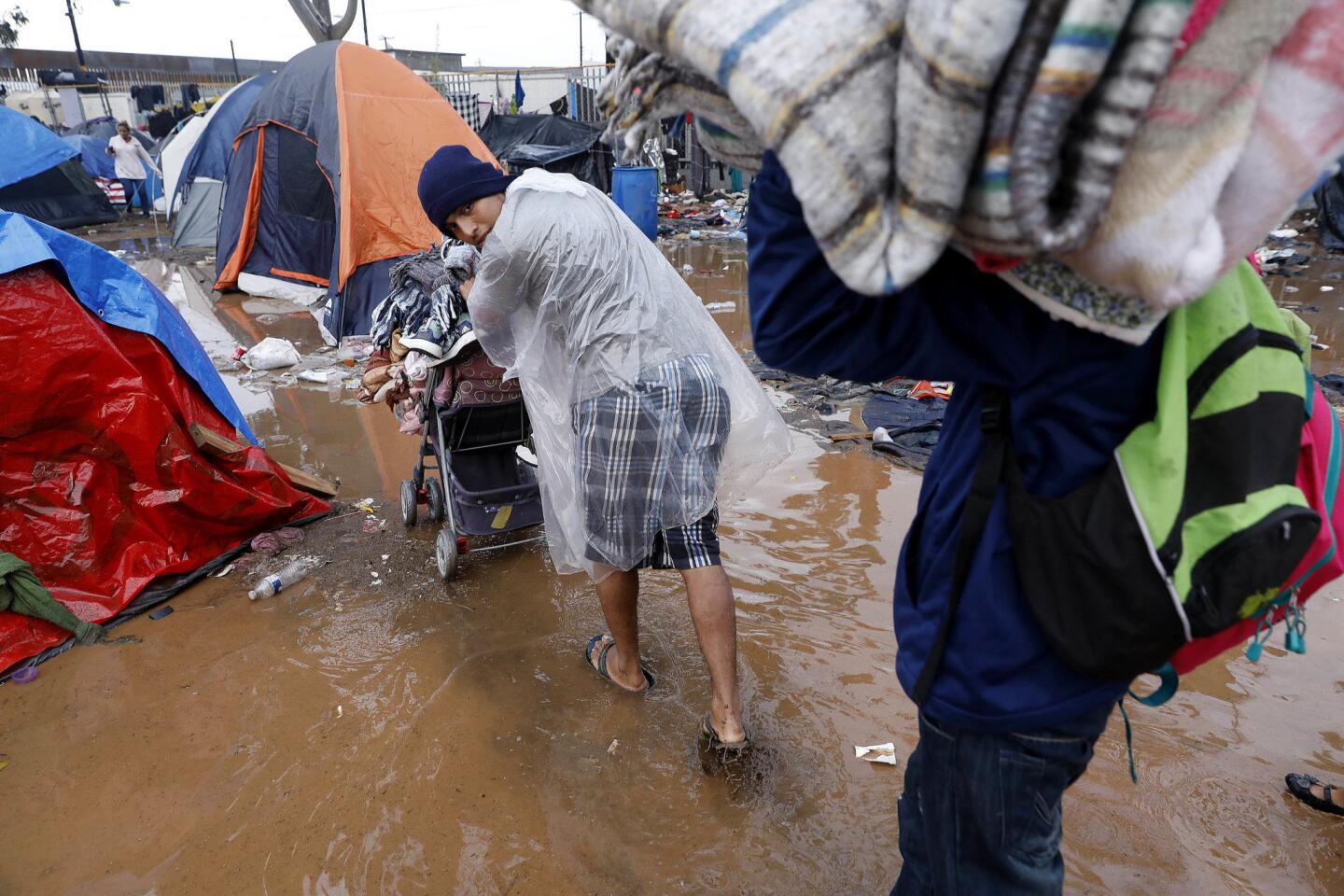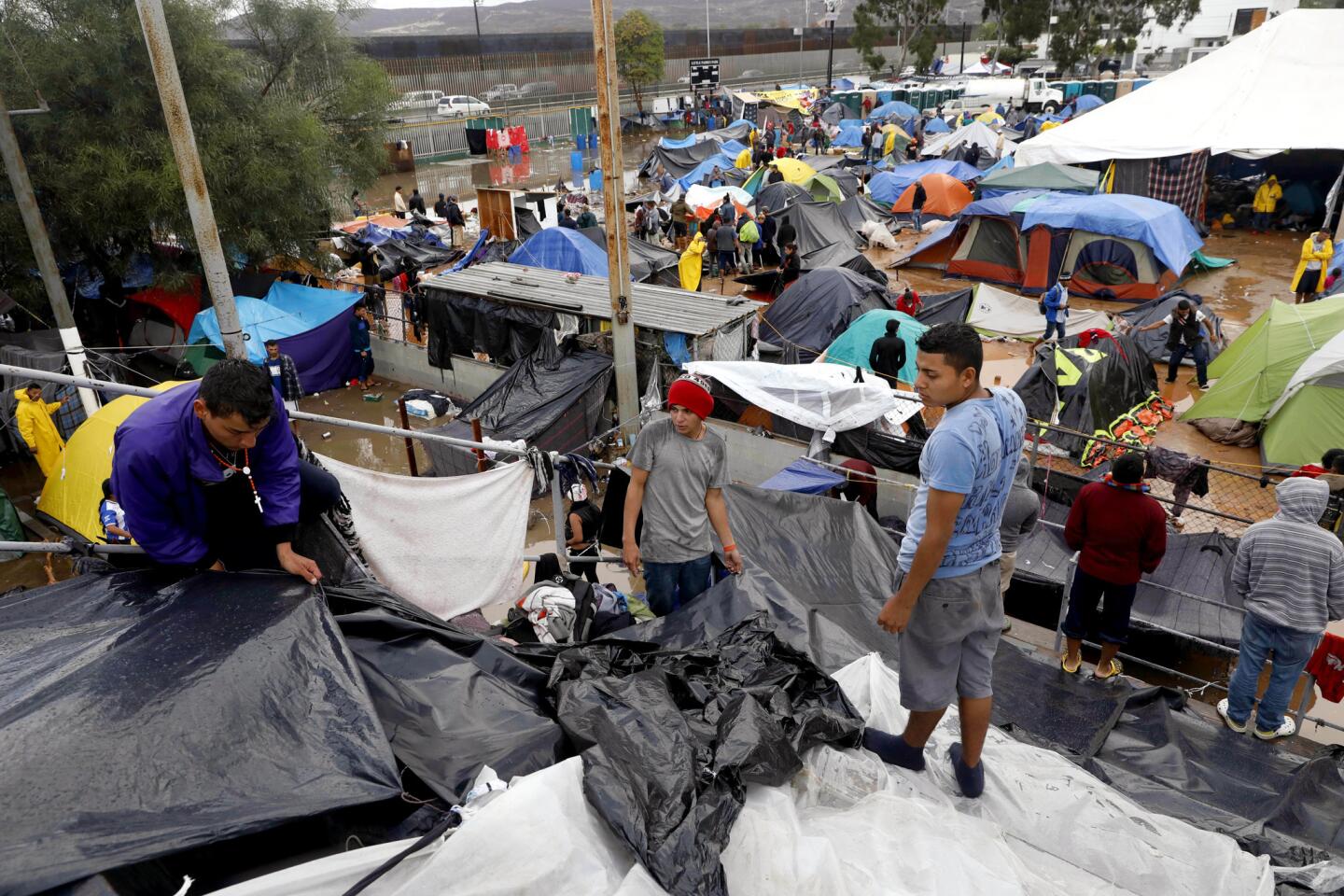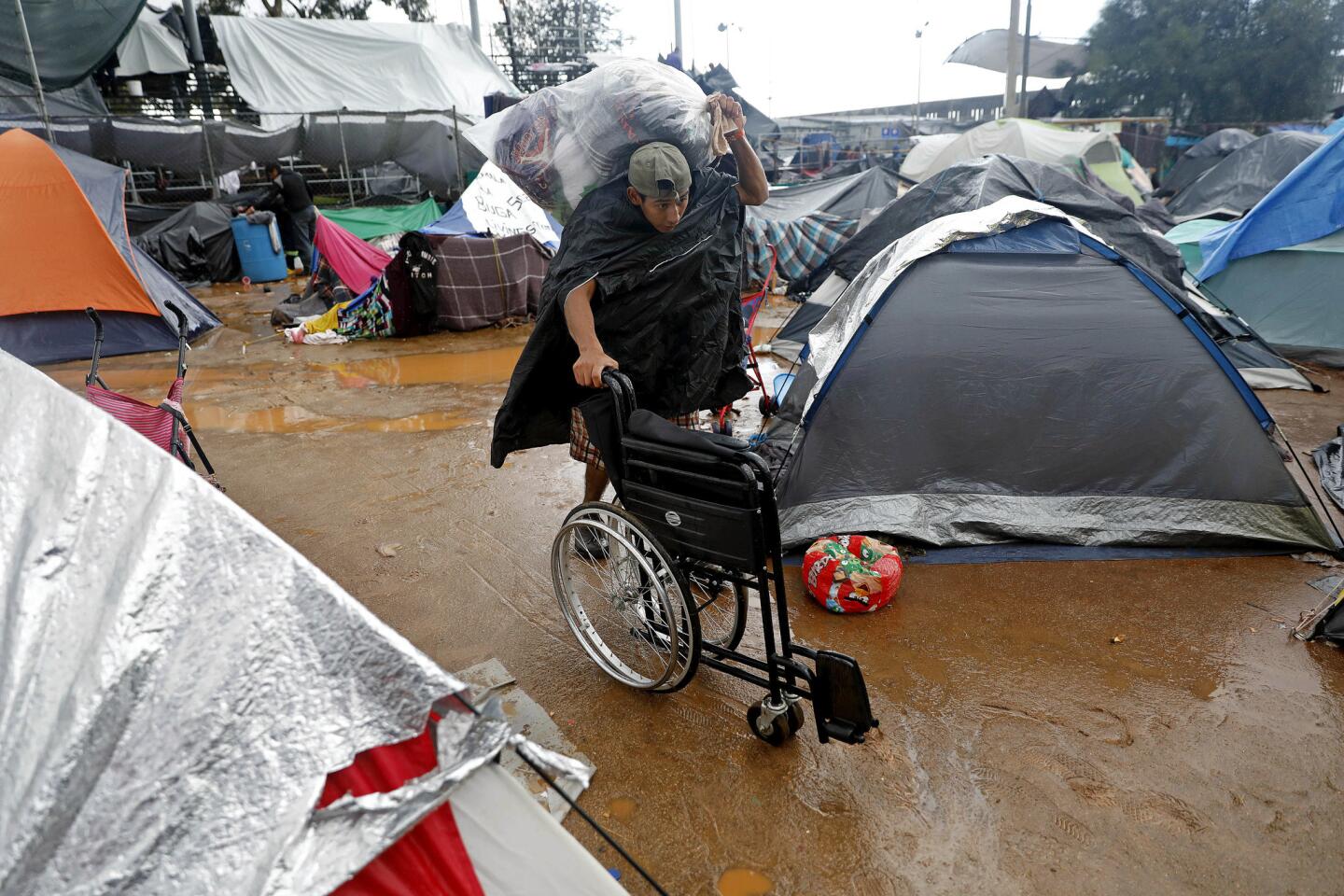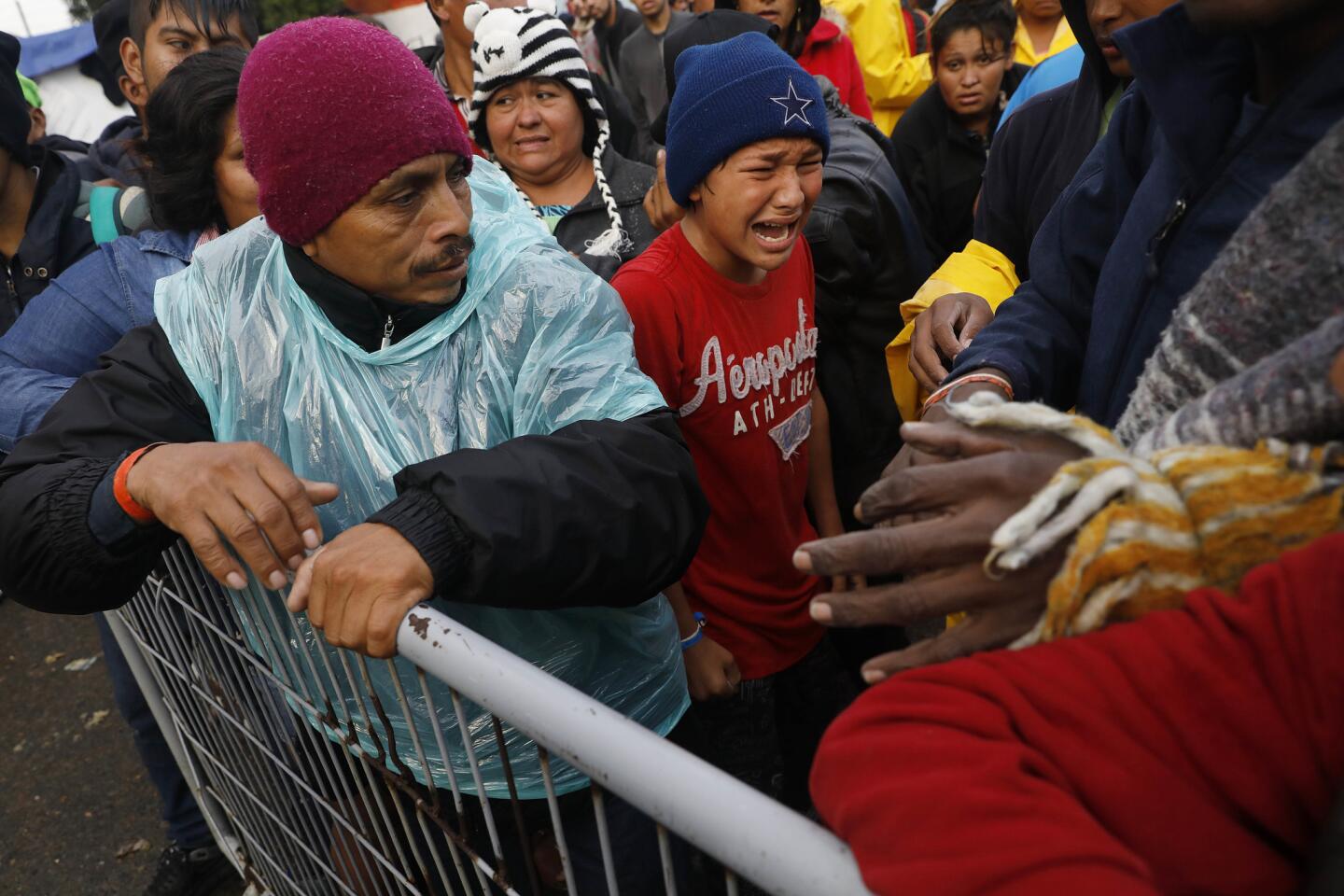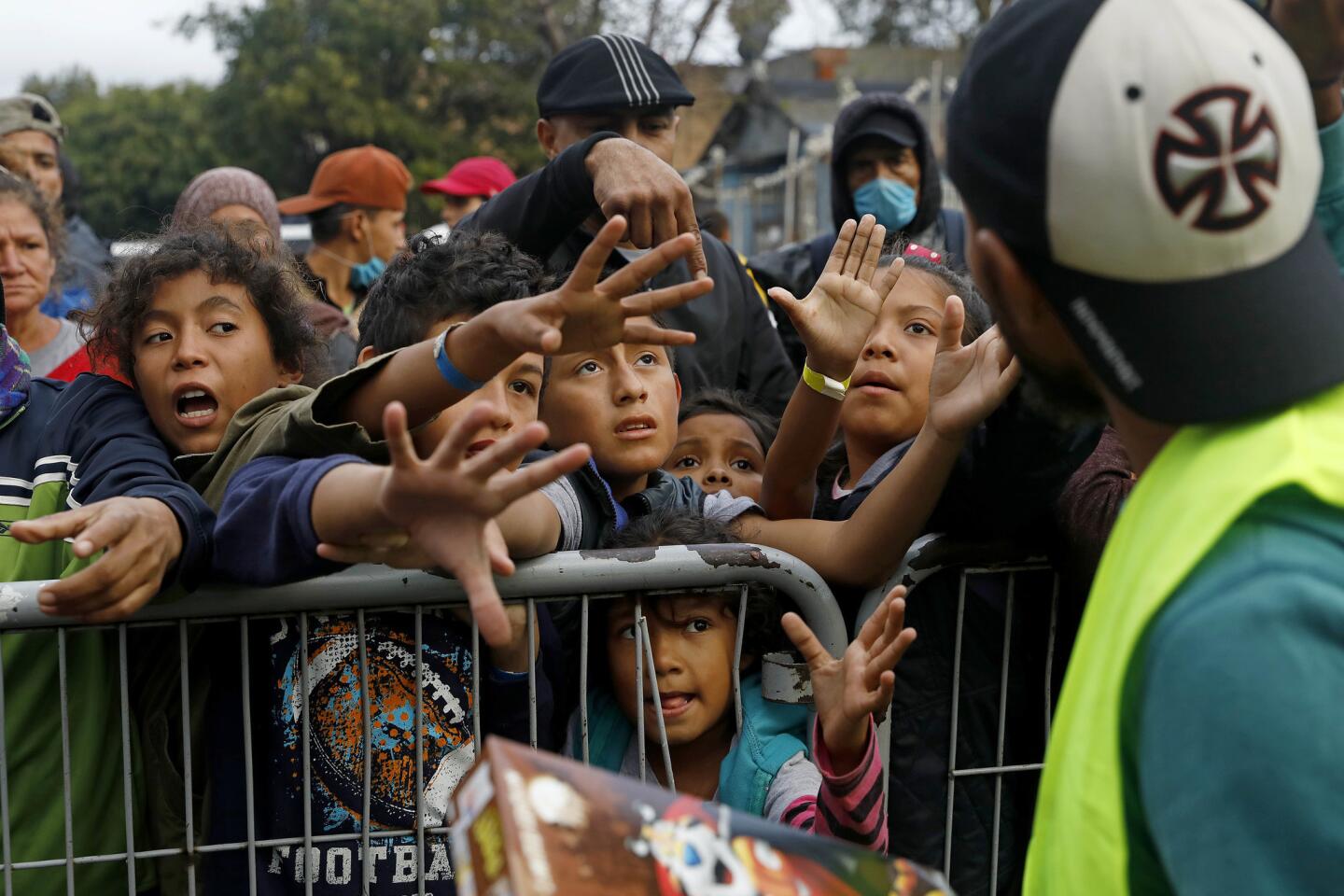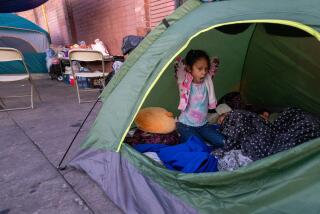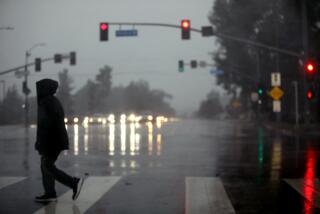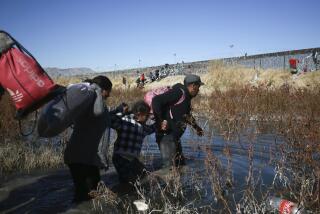Rain turns migrant camp in Tijuana into a miserable, muddy pit
Elian Levi didn’t think things could get much worse.
For the last two weeks, the 39-year-old from El Salvador has been living in Tijuana with more than 6,000 other migrants in a sports stadium not far from the U.S. border. Food has been sparse, the smell of sewage inescapable.
But then, before the sun rose Thursday morning, Levi heard the patter of rain falling on the plastic garbage bag he had strung up for shelter, and he realized that a difficult situation was about to become a miserable one.
A major storm system had moved into Tijuana, bringing torrential downpours of up to an inch of rain an hour, according to local meteorologists.
It was disastrous news for members of the migrant caravan who have been camped in the stadium in recent weeks, most of them sleeping on dirt. The rain soaked blankets, filled tents and created vast lakes passable only by makeshift bridges made of muddy clothes.
The camp now holds 3,936 men, 1,147 women and 1,068 children, according to Mexican authorities.
A lucky few found higher ground, including a family that had made a home in one of the team dugouts on a baseball diamond called Little Padres Field.
Levi left the stadium in favor of a concrete sidewalk on a neighboring street, where at least he knew the ground would not turn to mud.
“It is impossible,” he said, hauling a plastic garbage bag stuffed with his soaked possessions on his back. “What are we going to do?”
“I feel like a street dog,” he said, blinking back tears. “Wet and cold and with no place to go.”
Many migrants said they fear a health crisis is looming.
Nights in Tijuana have been cold, hovering in the mid-50s, and many people have developed respiratory infections.
The coughs of children were heard coming from a small shelter with a tarp for a roof and several wet blankets for walls.
The woman who was staying there asked not to be named because she said her family is fleeing gang violence in Honduras and fears for their safety. She and her husband and their three children all have colds.
“We are so wet,” she said. “We are so worried.”
“Adults can handle difficult things, but not children,” she said. “They suffer the most.”
She and her husband had purchased wooden pallets from a nearby store and planned to use them as mattresses Thursday night. They wouldn’t be very comfortable, but they would protect the children from the water that pooled on the ground despite their mother’s constant efforts to sweep it away.
Tijuana has no plans to move the migrants, according to a statement from the office of Mayor Juan Manuel Gastelum.
That was disappointing news for Lorenzo Garcia, a 38-year-old from the Honduran city of San Pedro Sula who was hanging wet clothing from a stick under a tarp Thursday afternoon.
His leather boots were soaked, as was his thin T-shirt. He and a friend planned to sleep sitting up Thursday night, because they didn’t have space under their tarp to lie down without getting wetter.
Nearby, someone under a tarp was playing a Madonna song, and a young couple was taking a cellphone selfie.
Garcia couldn’t muster that kind of optimism. All he could do was dream about a warm bowl of soup, he said, “and pray to God that the rain stops.”
More to Read
Start your day right
Sign up for Essential California for news, features and recommendations from the L.A. Times and beyond in your inbox six days a week.
You may occasionally receive promotional content from the Los Angeles Times.
